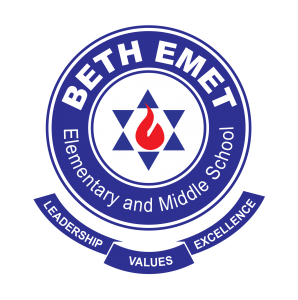Teaching Children About the Jewish High Holidays
“The new year stands before us, like a chapter in a book, waiting to be written.”
Two Jewish travelers were on their way home for the Jewish high holidays. One of the passengers said to another, “Holidays came with traditions and special foods. Maybe you can even remember Shabbat candles and some Hebrew prayer melodies. You have memories that linger deep inside and still touch your heart. The High Holidays are coming.” He then asked the other, “When your children think of Rosh Hashanah and Yom Kippur, what is the picture that pops into their minds?”
At Beth Emet School, in Judaic Studies, we not only focus on providing knowledge and understanding, but also, on the students’ commitment to Judaic values. Jewish life is taught and experienced in school through holiday observances, Israel education, Torah studies, life cycle events and customs, as well as prayers. It is this connection between our Jewish heritage and our daily activities in school that helps foster a sense of Jewish identity in our students.
During the Jewish high holidays, Rosh Hashanah and Yom Kippur are explained and explored in a warm and nurturing learning environment. The children learn that the words Rosh Hashanah translate to “head of the year” and that this time is known as a festive one, the Jewish New Year. It is also a day in which the Jewish year number changes. In 2021, the Jewish new year changes to 5782 and is celebrated.
While children learn about this special celebration and how it represents a fresh start to the year, many great learning opportunities and memorable routines can be explored. It is a perfect time to teach the benefits of reflection, while remembering the creation of the world.
Some of the best ways to teach children about the high holidays is through meaningful hands-on experiences and activities. For example, during these times families can do the following:
- Read Books About the Holidays
- Learn with Interactive Worksheets
- Write a Resolution Letter
- Dip Apples in Honey
- Create Holiday Cards for Friends and Family
- Tell Family Stories and Share Traditions
Students at Beth Emet School participate in meaningful holiday lessons. For example, students participate in a very special Tashlich ceremony. Tashlich means, “cast away”. This is where they reflect on the past year and ask for forgiveness for anything wrong, they feel they have done. Students also can write this down and let it go, to physically represent this meaningful time of reflection.




